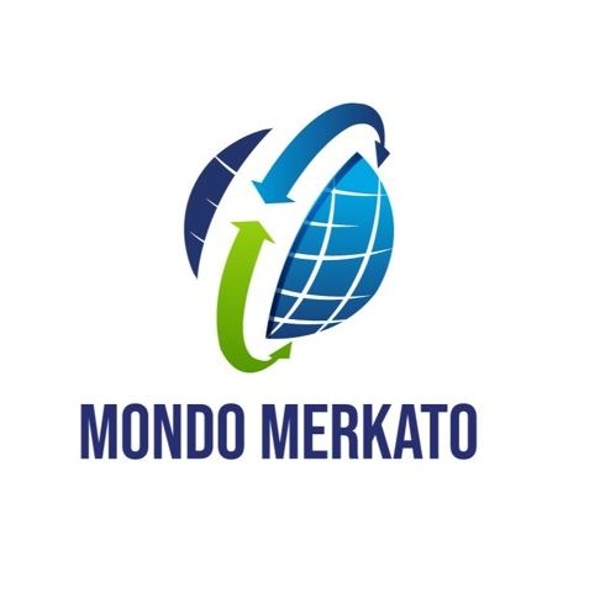How does soft drink king Pepsi and the internationally renowned pop group ABBA trade with the Soviet Union when rubles are useless? How does Blockchain work outside the public image of being tied predominately to Bitcoin?
Mondo Merkato, a new podcast series written and produced by James Hoadley, associate director of The Center for International Business Education and Research (CIBER) at Scheller College of Business examines these and other esoteric topics. Through his narratives, examples, and guest speakers, Hoadley provides rich content on subjects that have significant meaning in international business.
The first episode “Cola, ABBA and Soviet Submarines; the World of Countertrade” spins a fascinating tale of how countertrade, more commonly known as the barter system, was used to do business in the former Soviet Union beginning in the late 1950’s and into the early 90’s – using a system that ten to fifteen percent of the global economy still uses to trade goods and services today.
George Tracy, director, U.S. Commercial Services, explains that countertrade is really “an exchange of goods and services with no money exchanged.” This barter system includes three most common types of countertrade; counter purchases, offset and switch trading.
In 1959, the best example of countertrade lay in the U.S. and Soviet Union’s “kitchen debates” centered on which country contributed, not to weapons or territory, but to science, culture, and quality of life. Dr. John McIntyre, professor of international business for 30 years and an expert on Soviet trade and export controls, stated that any trade with the Soviet Union was a challenge due to an importer’s inability to get paid with currency they couldn’t convert due to the worthlessness of the ruble in post-WWII. Therefore, the two countries competed for cultural exports.
The inability to trade goods and services with monetary currency continued until the 1970’s when the Soviets offered a barter-style agreement with Pepsi. Pepsi would provide its product to Soviet citizens and in return, the Russians would provide Stolichnaya, or Stoli, vodka. In return, Pepsi sold the vodka to U.S. citizens. When the U.S. market for Russian vodka dried up, the episode explains what the surprising products Russia used to barter with Pepsi next in order to continue to enjoy its beverages. In addition to bartering for soda, the Soviets, being large fans of the pop group ABBA, bartered with them for their records. It’s worth a listen to hear what Russia traded with Pepsi and Abba for the opportunity to consume their products.
Blockchain gives you secured verifiable data that you can trust even if you’ve never met the people you're conducting a transaction with.
The second episode “the Blockchain Future,” addresses the misconception that blockchain technology is used only for Bitcoin trading. Hoadley’s guests, Mr. Daniel Goldman, CEO and founder of Ternio, Dr. Nishant Daas, associate professor of Finance at Scheller College and founder of the Blockchain Roundtable at Georgia Tech, and Mr. Jack Shaw, Blockchain Executive discuss that perception to reveal bona fide examples of the use of blockchain outside cryptocurrency.
“Blockchain is not Bitcoin just as email is not the entire internet,” according to Goldman. Using blockchain can be applied to far-reaching security of death and birth certificates, credit cards, IoT, passports, voter registries, supply chain processes and more. He continues, “Blockchain gives you secured verifiable data that you can trust even if you’ve never met the people you're conducting a transaction with.”
It does this by storing data, not just on one computer, but many whereas companies like Target or Equifax have not yet integrated blockchain and therefore are more vulnerable to attacks since data is stored in one source. According to Shaw, since the “information is stored on many, from ten to thousands of computers, in cryptographic technology, if a piece of data is hacked or changed within the data, the rest of the nodes on the blockchain will recognize it and deem it invalid.”
Dr. Daas states that the greatest potential outside cryptocurrency is fintech and supply chain in international trade where blockchain can prevent a breakdown in any stage of a handoff especially in trades that contain a long paper trail or many goods. For example, according to Shaw, if a country in Africa is selling flowers to Rotterdam in shipping containers, each port the ship enters must record the transaction. The chance of error or corruption is high when using paper. However, converting paper records to online records using blockchain, if properly implemented, makes the data hack-proof.
Additional podcats in the series include “What’s the Currency Kenneth,” Should We All Speak Esperanto,” and “Understanding Global Markets.”
The podcast can be accessed through the CIBER site on Scheller’s website or on the Mondo Merkato Podcast page.
